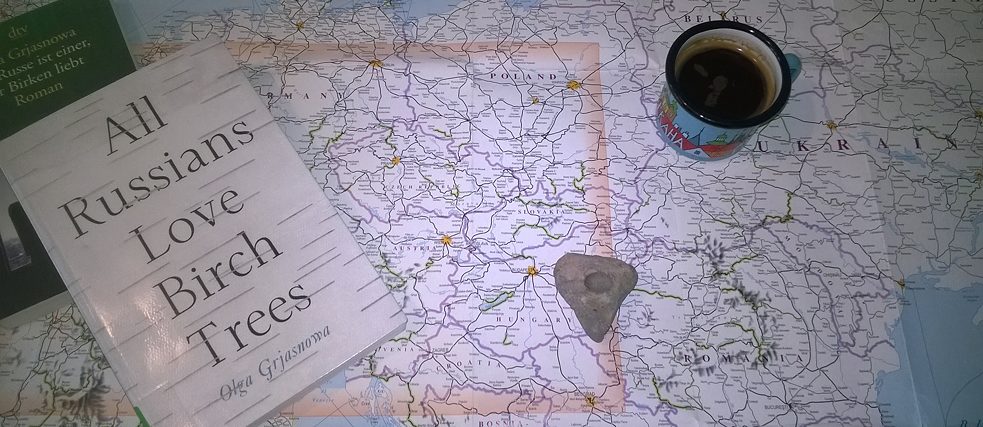July 2019
All Russians Love Birch Trees: Citizens of Nowhere

I first read Deborah Levy’s Hot Milk one swelteringly hot afternoon on an unexpected holiday. The novel is mesmerising, as languid and seductive as a long day at the beach, with the same capacity for unexpected pain. Levy captures the precarity of being young and between cultures in the 21st century. The British-Greek Sofia – in Spain looking after her undiagnosed mother – should be finishing her PhD but instead works in a hipster café where she steals sharpies to write ethnography quotes on her bedroom wall. When her laptop screen shatters, she admits that “my laptop has all my life in it and knows more about me than anyone else. So what I am saying is that if it is broken, so am I.”
Olga Grjasnowa’s debut novel All Russians Love Birch Trees (tr. Eva Bacon) has much more movement, both geographical and metaphorical, than Hot Milk, but it similarly captures the restlessness and uncertainty of a particular generation of young Europeans. A Russian Jew, Masha grew up in Azerbaijan, fleeing with her family to Germany when she was 14 and escaping from a trauma which she refuses to see as “the key to my identity” but which is increasingly present throughout the novel. Her friends have similarly mixed backgrounds and all of them recognise that – despite their keen intelligence and multilingualism – they’ll never be as valued as their western European peers. When – by now a student and fluent in 5 languages – Masha loses the person she loves, she tries first to “fill the void with vocabulary” and finally flees to Israel, where conflict is ever present.
Despite being propelled by Masha’s grief, the novel is never dragged down by it, leavened instead by her genuinely caring friends as well as a dry sense of humour which recognises the absurdities prompted by grief. Sitting in a hospital waiting room, Masha reads an old Vogue:
“I tore out the first page, folded it, and put it into my bag. Then I tore page three out, folded it and put it into my bag. … By page 107 my bag was full.”
Her mother, meanwhile, has taken to numbering their different relatives so as to keep track of them.
Through Masha’s and her friends’ chequered biographies, Grjasnowa creates a far more nuanced sense of politics and history than can be expressed in political slogans or – more frequent in the novel – drunken conversations. This throws off-kilter narratives we think we know about identity, borders and belongings. Faced with a particularly obnoxious professor, Masha is dismissive:
“I wouldn’t tell him that people who live without running water aren’t necessarily uneducated. … His multiculturalism took place in congress halls, convention centers, and expensive hotels. To him integration meant demanding fewer hijabs and more skin, hunting for exclusive wines and exotic travel destinations.”
All Russians Love Birch Trees is a debut and there are a couple of moments where this is noticeable; either Masha is a very precocious student, or the time line doesn’t quite add up. Nonetheless, this is a remarkable, compelling read – and, at a time when nationalism is becoming ever more pernicious, an important one.
Olga Grjasnowa will be reading at the Edinburgh International Book Festival on 22 August. Further information can be found under the link above.